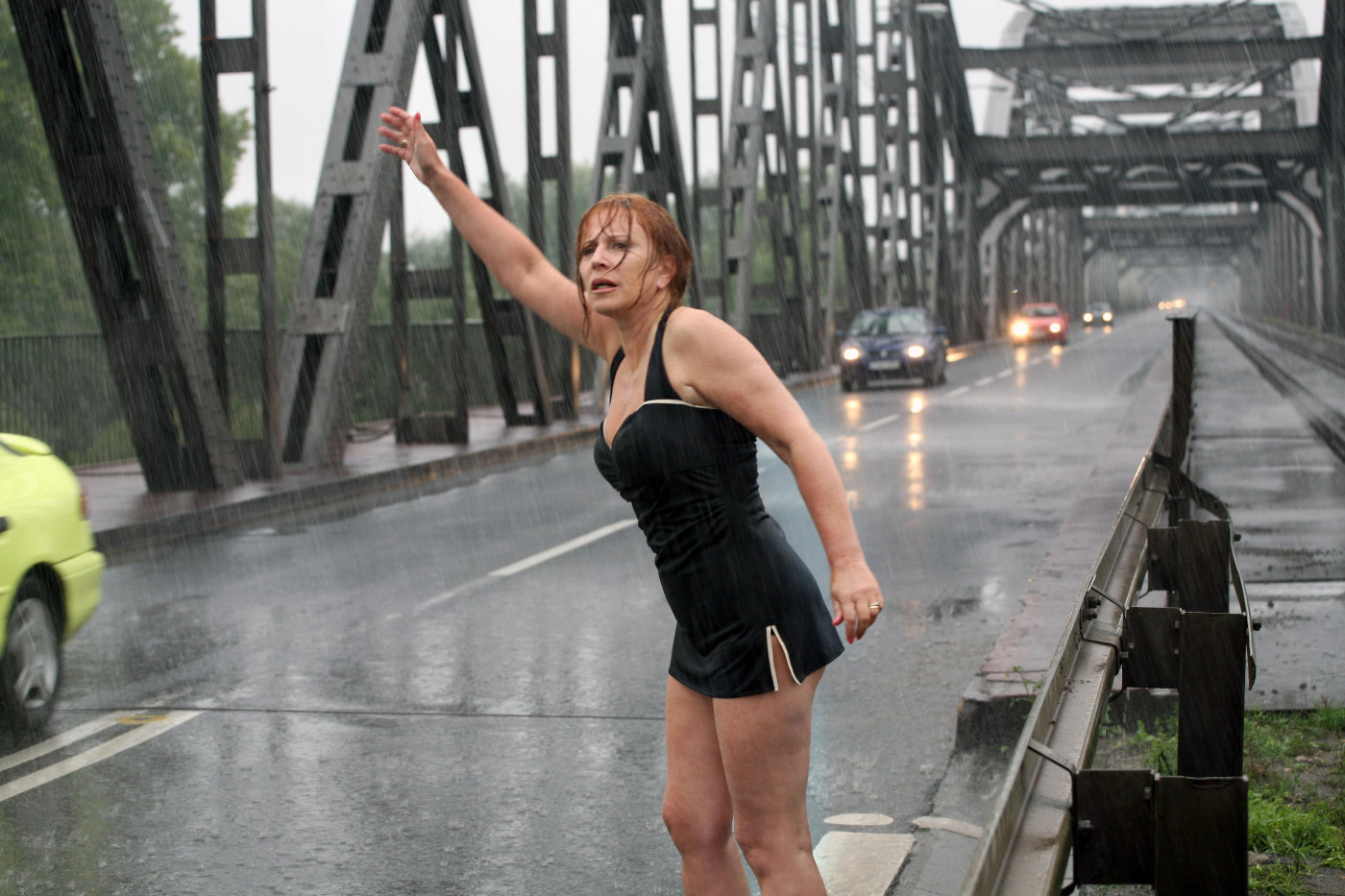
In his latest film Sweet Rush, legendary Polish director Andrzej Wajda cast one of Poland’s most respected contemporary actresses, Krystyna Janda. Together they created a multi-layered reflection on death and on the thin line which separates life and death.


In his new film legendary director Andrzej Wajda returns for the fourth time to the prose of Polish literary legend Jarosław Iwaszkiewicz (previous works based on Iwaszkiewicz include The Birch Wood, 1970, The Maids of Wilko, 1979 and June Night, 2001). The skeleton of this unusual film is the story of Marta, the lonely wife of a small-town doctor who, during the post-war years, tries to come to terms with the loss of both sons and, in the process, starts up a relationship with the young, simple labourer Boguś. In the main role Wajda cast one of Poland’s most respected contemporary actresses, Krystyna Janda, who invested in the film a personal, highly emotional theme in her decision to share her own grief at the loss of someone she loved. Thus, on another plot level, the static camera scrutinises the actress as she sits in a dimly-lit hotel room serenely describing the last days spent with her dying husband, the cinematographer Edward Kłosiński. Sweet Rush is a multi-layered reflection on death and on the thin line which separates life and death. Wajda’s film won the Alfred Bauer Award at this year’s Berlin IFF for its innovative approach.
83 min / Color, 35 mm
Director Andrzej Wajda
/ Screenplay Andrzej Wajda, Krystyna Janda podle povídky / based on a short story by Jarosław Iwaszkiewicz
/ Dir. of Photography Paweł Edelman
/ Music Paweł Mykietyn
/ Editor Milenia Fiedler
/ Producer Michał Kwieciński
/ Production Akson Studio
/ Cast Krystyna Janda, Paweł Szajda, Jadwiga Jankowska-Cieślak, Julia Pietrucha, Jan Englert
/ Contact Akson Studio, Les Films du Losange
www: www.filmtatarak.pl

Andrzej Wajda (b. 1926, Suwałki, Poland) devoted a large portion of his work to Poland’s wartime history. After his debut Generation (Pokolenie, 1954) he focused on resistance fighters from the unsung Home Army in the films Canal (Kanał, 1956), Ashes and Diamonds (Popiół i diament, 1958) and The Crowned Eagle Ring (Pierścionek z orłem w koronie, 1992). He described the tragic beginnings of war in Speed (Lotna, 1959) and Chronicle of Love Affairs (Kronika wypadków miłosnych, 1985), the post-war trauma of Polish prisoners in Landscape after the Battle (Krajobraz po bitwie, 1970), and the humiliating treatment of Poles in A Love in Germany (Eine Liebe in Deutschland, 1983). He examined the Jewish question in Samson (1961), Korczak (1988) and The Holy Week (Wielki Tydzień, 1995), returning to the theme of war in Katyn. Surprising for its innovative approach, Sweet Rush picked up the Alfred Bauer Award at the Berlinale.
Akson Studio
ul. Piękna 44A, 00-672, Warsaw
Poland
Phone: +48 609856659
E-mail: [email protected]
Les Films du Losange
7/9 rue des Petites Écuries, 750 10, Paris
France
Phone: +33 144 438 710
E-mail: [email protected]

Aleksandra Biernacka
Publicist

Maciej Karpinski
Film Institution Rep., Film Institution Rep.
First-hand brews throughout the year.
Be among the first to learn about upcoming events and other news. We only send the newsletter when we have something to say.